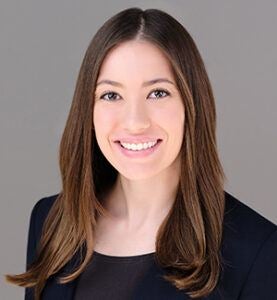 June 1, 2022 – We are thrilled to welcome Barbra Dickerman as Assistant Professor of Global Cancer Prevention in the Department of Epidemiology affiliated with the Zhu Family Center for Global Cancer Prevention. Dickerman is a 2018 graduate of the (PhD) program in Population Health Sciences and most recently an instructor in the Department of Epidemiology. Learn about the newest member of our faculty in the following Q&A:
June 1, 2022 – We are thrilled to welcome Barbra Dickerman as Assistant Professor of Global Cancer Prevention in the Department of Epidemiology affiliated with the Zhu Family Center for Global Cancer Prevention. Dickerman is a 2018 graduate of the (PhD) program in Population Health Sciences and most recently an instructor in the Department of Epidemiology. Learn about the newest member of our faculty in the following Q&A:
What led you to epidemiology? What is it about the field that attracts you?
My first exposure to research took place during my undergraduate studies at the University of Pennsylvania. In close collaboration with faculty, I contributed to global public health research on modifiable risk factors for chronic diseases, including cancer. My research mentor provided me with opportunities for hands-on experience with many stages of the research process, including applying for an undergraduate research grant, conducting fieldwork in China, presenting at scientific meetings, and writing manuscripts. These early opportunities sparked my interest in epidemiologic research.
This interest grew during my subsequent clinical experience in an intensive care unit, where I cared for individuals with complex, life-threatening medical conditions. This was a formative experience that ultimately drove me to shift my efforts from treatment at the individual level to prevention at the population level. This potential scale of impact continues to attract me to the field of epidemiology.
Can you tell us a little about your research background? How did you get started in your current field?
During my graduate studies at the Harvard Chan School, I began to explore the interface between causal inference and cancer epidemiology. Gradually, I became interested in questions about the effectiveness of dynamic strategies for cancer control – that is, personalized strategies in which interventions over time can be tailored to individuals’ unique and evolving characteristics. During my postdoctoral fellowship, I extended my training in causal methods and large health databases to help answer those questions.
3. What questions/problems are you working on that you are most excited to explore?
There is growing interest in precision prevention and early detection strategies for cancer. However, evaluating these dynamic (personalized) strategies is challenging because a randomized trial may be infeasible and conventional methods may be inadequate. The intersection of large databases of electronic health records (EHRs) and causal methods provides the opportunity to inform decision-making about personalized strategies as well as the design of more efficient trials. We are developing a framework to evaluate dynamic cancer control strategies at scale using nationwide databases of EHRs; extending this framework to different cancer control questions, study designs, and data sources; and exploring how this may enable a learning health system that quickly translates results from big data analyses to patient populations.
What plans do you have for the first few years of your new role here at the Harvard Chan School?
I look forward to working with students who share my excitement about using large health databases and cutting-edge analytic tools to identify better strategies for the prevention and early detection of cancer. I also look forward to strengthening and expanding collaborative relationships with methodologists, cancer researchers, and clinicians in the School and beyond.
Can you tell us one thing (e.g hobbies/interests) that colleagues may not know already about you?
In my free time, I enjoy hiking (and generally spending time in nature) and discovering new art.
–Coppelia Liebenthal



